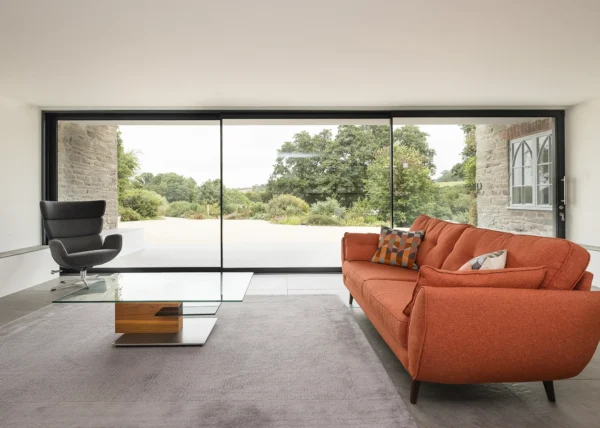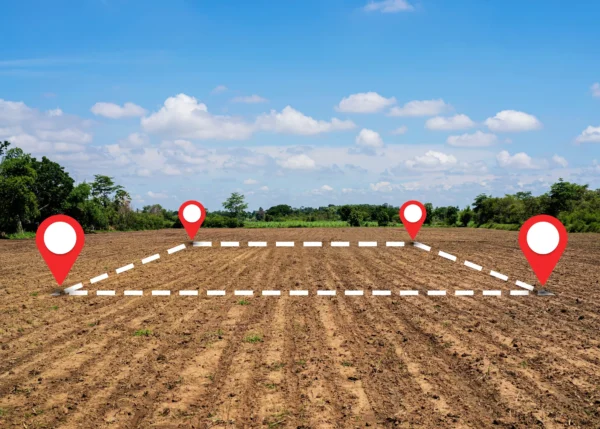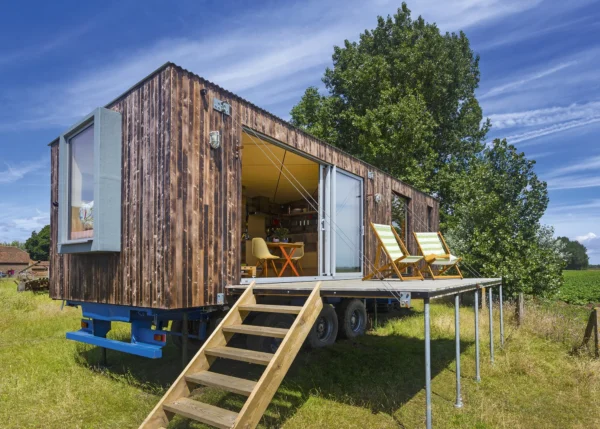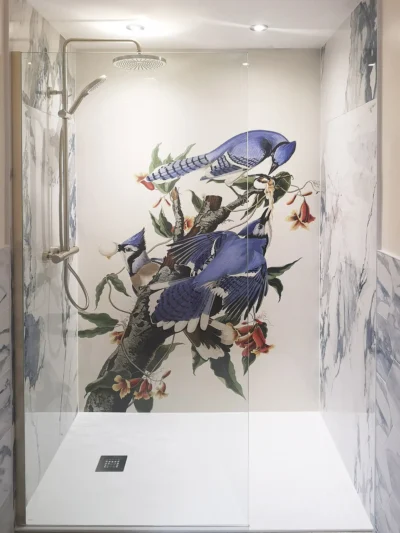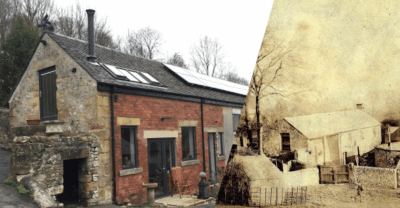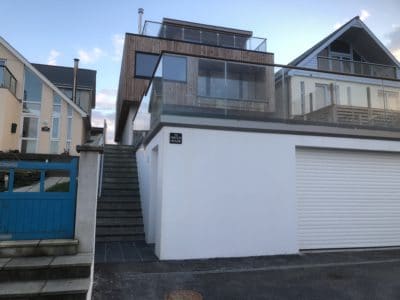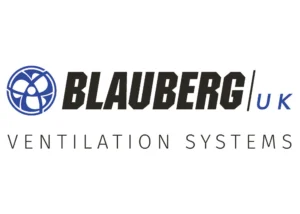Hot Water and Energy Bills: Reducing Your Water Use and Energy Costs
Hot water usage is a fundamental part of everyday life. Whether that’s cooking, cleaning, showering, washing up or washing our hands – the litres add up quickly, and so do energy bills. Think about it this way: the more hot water you use while in the shower, the more energy it takes to heat that water – and the higher your energy bills will be.
So, it’s worth investing in technology that can not only prevent excessive water and energy use at home but help do that little bit extra for the environment. By installing features that limit water flow, you can save a significant amount of water without feeling restricted, so it’s worth taking a look.
But how do these systems work? Here we discuss how re-evaluating your household’s systems can help you pocket some extra cash. But first, we need to understand how we use water around the home.
How Much Water Do We Use?
According to the Energy Saving Trust, the average four-person UK household uses around 345 litres of water each day. Within this, the energy used to heat hot water for showers and taps makes up 12% of a normal household energy bill.
With household gas and electricity bills expected to increase by £500 per year in April, investing in new ways to save on water and energy is something all families should consider.
How Can I Save Water?
Water usage is mostly accounted for through showering, washbasins and kitchen taps. This means it can be cut down by either installing new tech or curbing consumption. Here are the key areas:
Showers
Simply installing a new shower head can help you reduce water consumption by 50%, cutting energy bills drastically. Modern low-flow devices such as GROHE’s EcoJoy will introduce air into the water stream, saving on resources without making an obvious difference to the showering experience.

Installing a new shower head or system can help you cut down on water consumption without making an obvious difference to the performance. Through investing in GROHE’s water-saving features, you can save up to £475 on shower water bills
As an example, a modern low-flow shower head typically uses around 7.5 litres of water per minute – versus 15 litres per minute or more for older designs. Every extra litre you need to heat will add to your energy bills.
Establishing good habits will make an impact, too. Perhaps you can invest in a shower timer or play a song that’s the same length to reduce shower lengths.
Taps
The same principle can be applied to taps, and water-limiting technology will help you cut back. Mixer taps such as GHROE’s SilkMove ES prioritise cold water flow, ensuring you don’t accidentally call for hot water when you don’t need it.
A drippy tap will make a bigger impact than you’d think and it can also become a nuisance. Don’t ignore it, repair or replace it!
In the kitchen, instead of waiting for hot water when washing up and then letting it run down the drain, consider filling up a washing-up bowl and then rinsing it with cold water.

The GROHE Essence single-lever basin mixer features SilkMove cold start tap technology to eliminate the possibility of opening the faucet in the mixed hot-and-cold water mode, saving energy by preventing the use of hot water for simple tasks such as washing hands
Appliances
Most modern appliances such as dishwashers and washing machines tend to be relatively efficient. The main habit to practice here is to ensure that dishwashers and washing machines are fully loaded before being turned on, rather than doing small and frequent loads.
Pipework and Tanks
Ensuring your water tank and pipes are well-insulated will bring both hot water usage and energy bills down.
By insulating your tank, if you have one, you’ll be keeping the hot water warm for longer. This means you’re not waiting as long or having to use excessive energy to bring the water up to a good temperature.

Water-saving technology doesn’t have to impact aesthetics. GROHE’s wide range of kitchen taps, including the Eurosmart Cosmopolitan, will ensure you find something that is both smart and efficient
Insulating hot water pipes also means that water stays warmer for longer in the system; so there’s less need to run taps or showers before you achieve the temperature you want.
Both hot water cylinder jackets and pipe insulation are cheap and easily installed as they are usually made from foam.
Boilers
It’s worth checking the domestic hot water output temperature on your boiler or renewable heating system. If yours includes a hot water cylinder, then the boiler should be set to between 60°C and 65°C. This is important to kill any bacteria (such as Legionella) that could grow at lower temperatures.
If you have a combi boiler, however, you can reduce the setting to around 50°C. That’s because a combi boiler only heats water when required – sending it directly to the tap at mains pressure, without any need for a storage tank.
Solar Water Heating
Solar thermal panels use the sun’s energy to heat the water that’s stored in a cylinder. These are great eco-friendly options and because sunlight is free, this investment will reduce overall energy costs. But because solar energy fluctuates throughout the seasons, they won’t be able to supply all the hot water you need. As a rough estimate, a typical installation can fulfil about 50% of your annual hot water needs.
| GROHE is a leading provider of sanitary and water fittings. They strive to create innovative products that will encourage efficient use of water, helping to save money and the environment. To find out more, visit GROHE’s energy saving hub. |



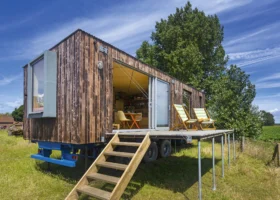
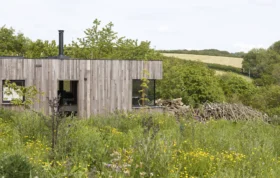
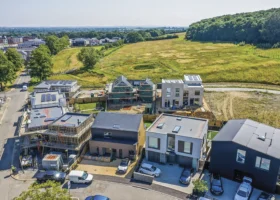
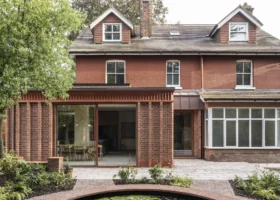
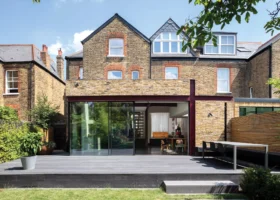
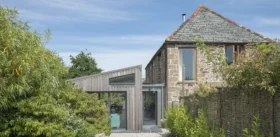



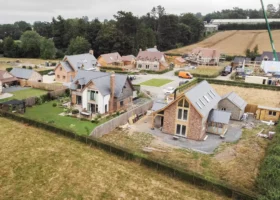

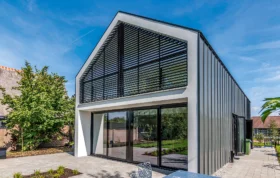

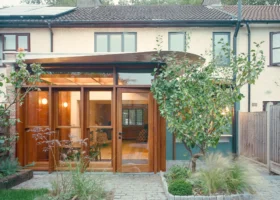
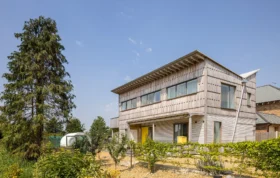
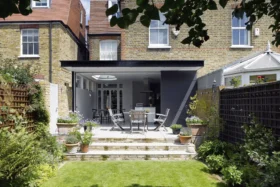
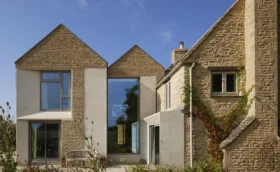
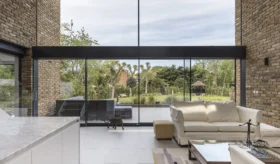
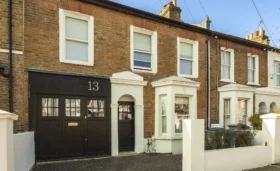
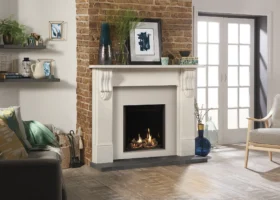
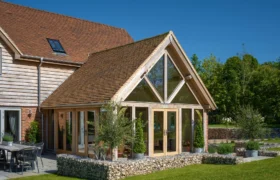










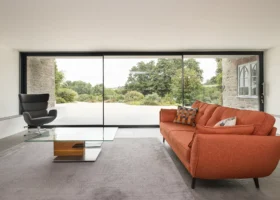

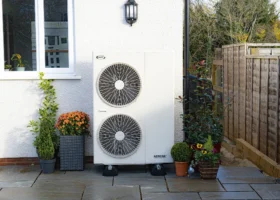

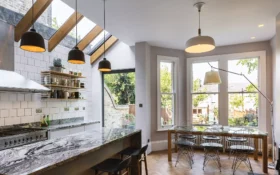


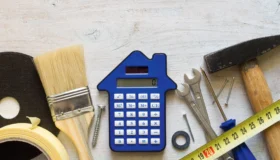
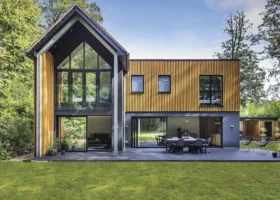
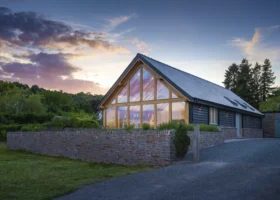

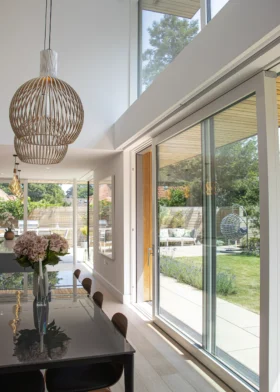
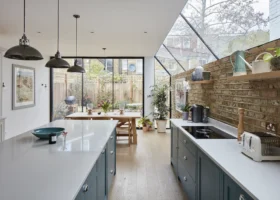

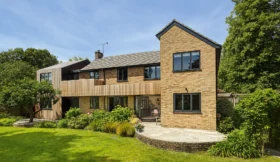
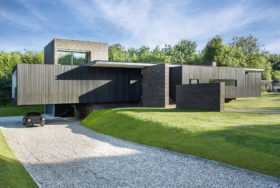
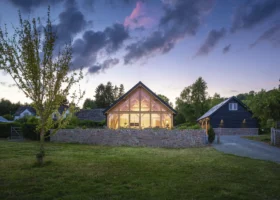
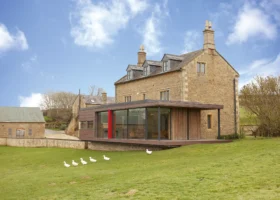
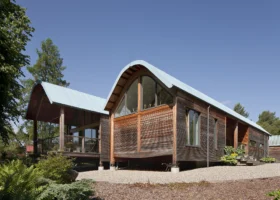
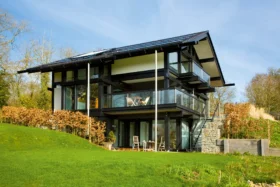


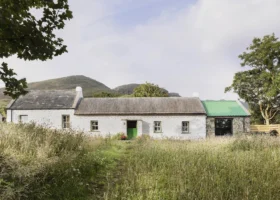
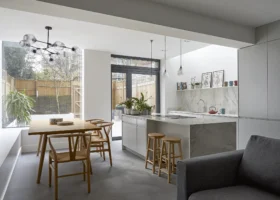
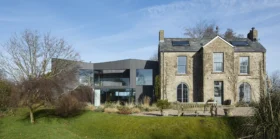
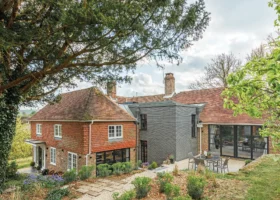
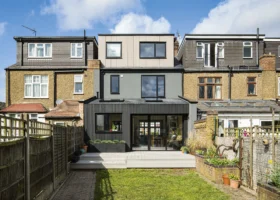
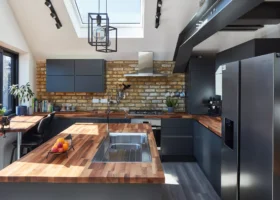

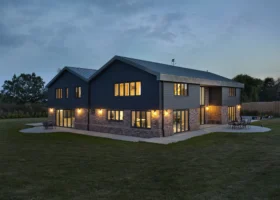
















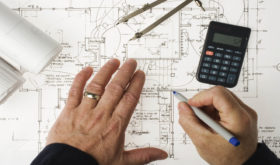





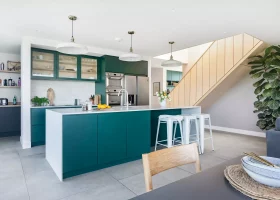









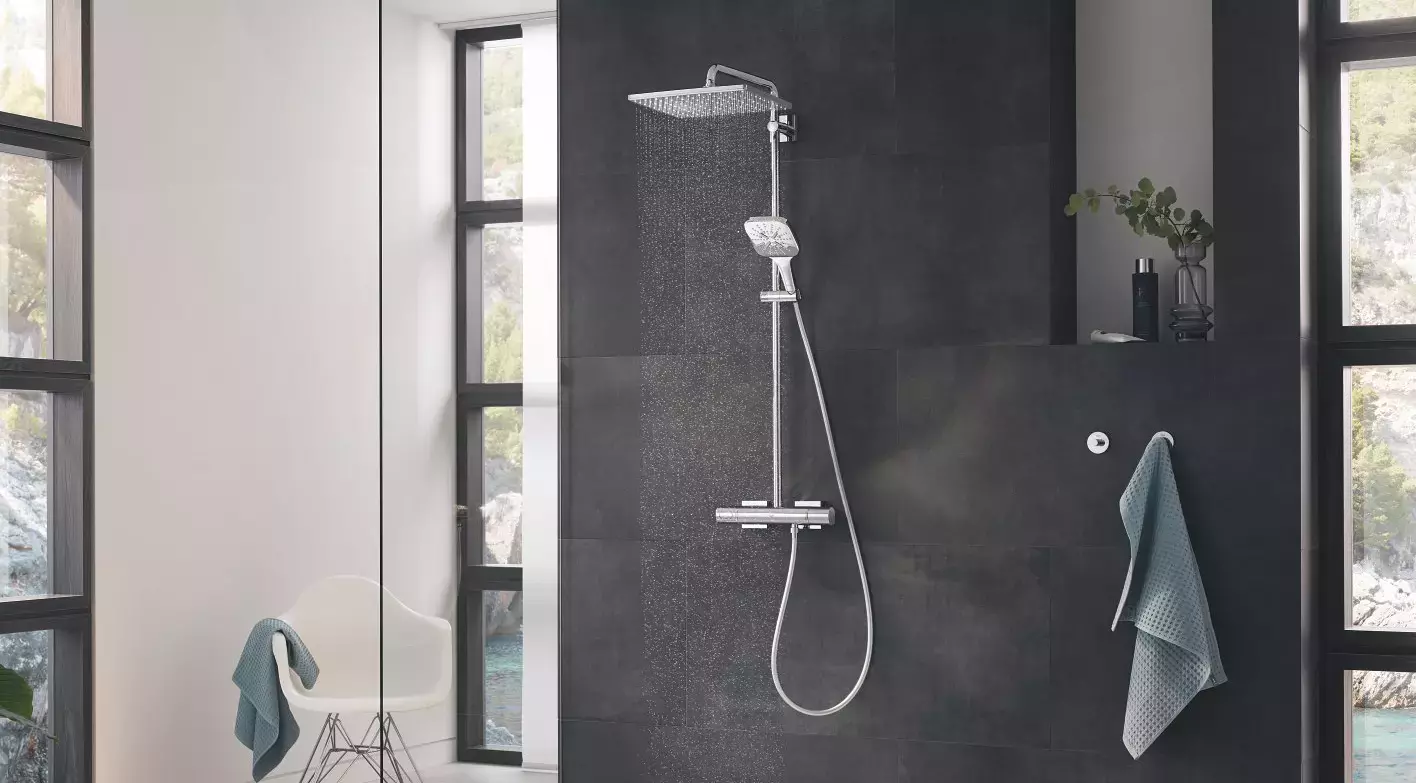
 Login/register to save Article for later
Login/register to save Article for later


